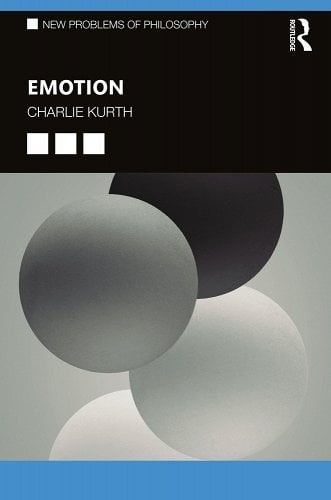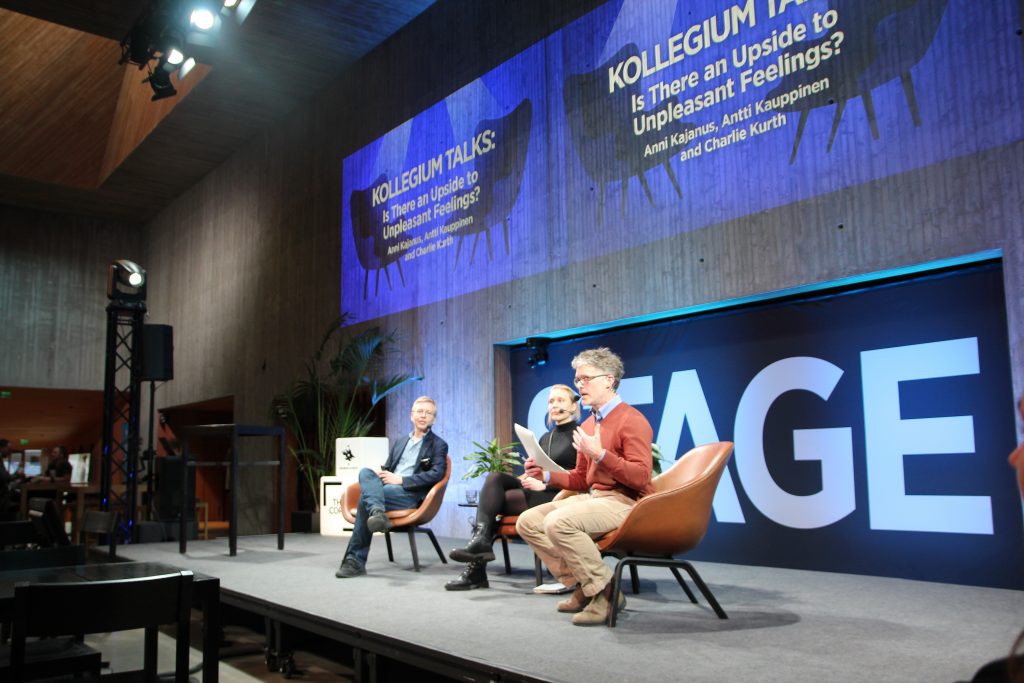By Charlie Kurth
I’m a Philosopher from Western Michigan University, spending two years as a Core Fellow at the Collegium. The project that brought me here looks at “negative” emotions—things like anxiety, disgust, shame, and anger. I’m trying to understand whether they help us become better people. My working hypothesis is that they can when they are felt at the right time and in the right way. This means that the hard issue—the one I’m really wrestling with—is about emotion cultivation. What, if anything, can we do to shape these emotions for the better?

The cover of Charlie Kurth’s recent book “Emotion” (Routledge, 2022)
In my first six months at HCAS, I’ve been making great progress on the book. This is in part due to having—as the HCAS motto states—the freedom to think: to have the time to work slowly and meticulously through the details of the book I’m writing. But at least as big a driver of my progress comes by way of my interactions with other Fellows and the opportunities to engage with scholars throughout the University of Helsinki.
As one example, at the end of February, I had the chance to present some work-in-progress at the HCAS Fellows Seminar. I’ve been working on a paper that develops a novel account of shame where I’m trying to better understand both what shame is from a scientific perspective and, from a philosophical vantage point, how shame might be morally valuable. While I felt that the paper was coming together, I also want to get it published in an interdisciplinary journal. So even though I was pretty happy with the progress I was making, I was also worried about whether I was framing the issues in an intuitively accessible manner.
The seminar feedback was tremendously helpful. I’m used to talking to philosophers in the language of philosophy. But the HCAS crew is a very interdisciplinary group. So as I was preparing my presentation for the Seminar, I was forced to focus on explaining what the core elements of my account of shame were, and how I could present them in a way that was accessible to non-philosophers. Wow—that was hard! But the payoff was big. Not only did the process leave me with a better sense of what I was trying to say, but the questions that I received from the other Fellows made me rethink some of the central assumptions that I was making. I’m now putting the finishing touches on a revised—and much stronger—version of the paper that will be sent out for review in a few weeks.

Antti Kauppinen (on the left), Anni Kajanus and Charlie Kurth at Think Corner on March 15, 2023
Shortly after my Fellows Seminar session, I also had the opportunity to put together a panel discussion for the HCAS Kollegium Talks Series at Think Corner. The session’s title was, “An Upside to Negative Feelings?” and it consisted of three scholars discussing how feeling bad can be good for us. Anni Kajanus, Associate Professor of Social and Cultural Anthropology at the University of Helsinki, talked about her recent work on irritation. Based on her study of individuals in the US, Finland, and China, she’s found not only that we tend to be (particularly) irritated by people we are close to, but that this irritation can be a valuable tool—one that helps us protect (even strengthen) our relationships. In short, being annoyed at your spouse can be a good thing!
Antti Kauppinen, Professor of Practical Philosophy at the University of Helsinki, discussed anger. Feeling angry when someone harms something you care about is an important sign that you value the thing that’s been harmed. And being angry about these harms can also be an important source of motivation to protect what’s been damaged. For instance, if someone insults your friend, it makes you angry and you’re likely to feel moved to stand up for them as a result. That can be a very good thing.
My contribution was to talk about some of my work on anxiety. As I see it, anxiety is an emotion we feel when we are uncertain about what to do or say. And our anxiety can be helpful because it can motivate useful reflection: it makes us think about how best to resolve the uncertainty we face and so come to a better decision about what to do. The result of the Think Corner event was a lively discussion, not just between the three of us, but a lengthy and enjoyable Q&A session with the audience.